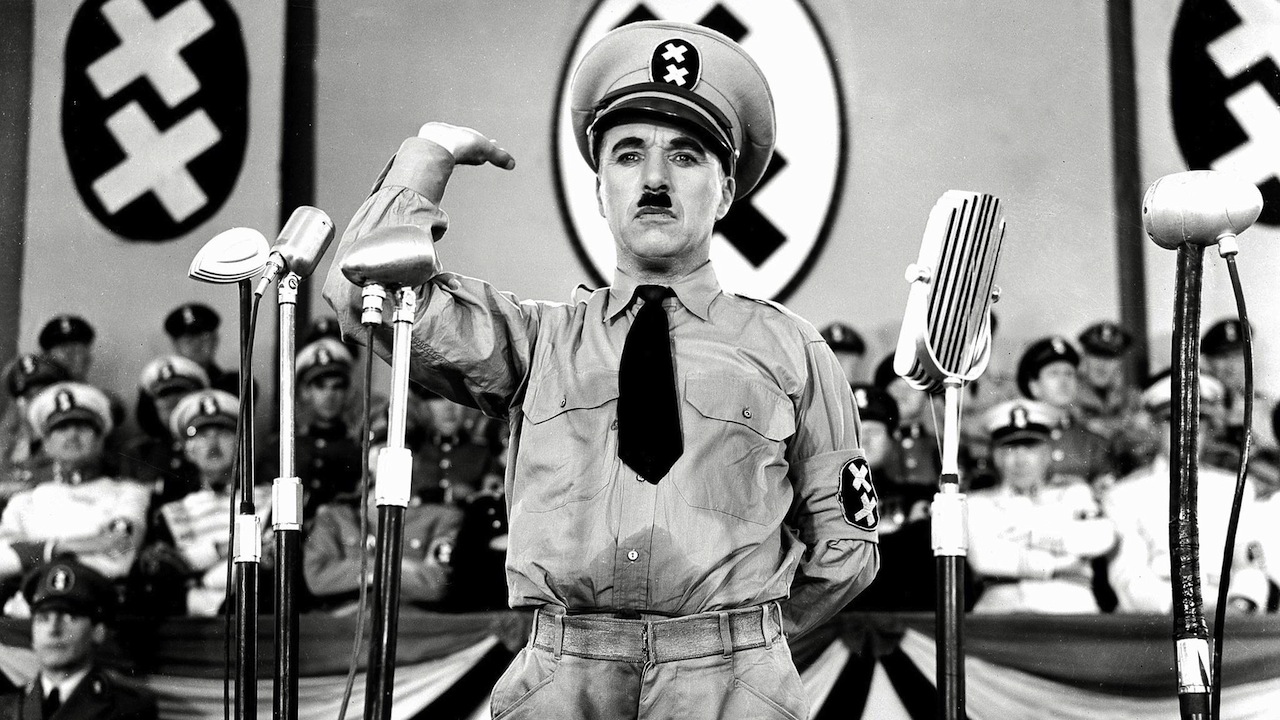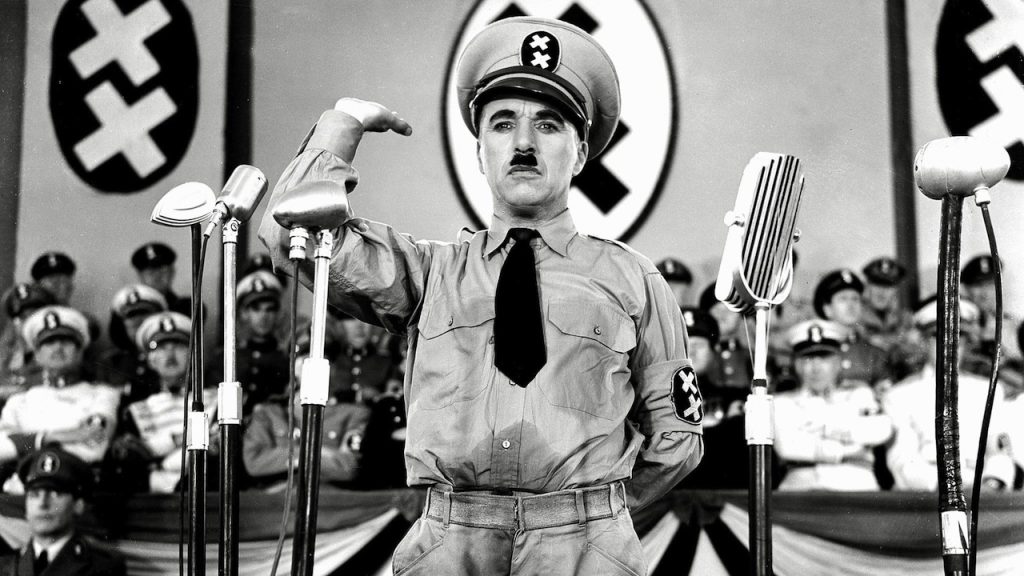

For this discussion assignment, you will take the speech you’ve read and briefly tell the class about it. What about the speech stood out for you? Do you think you know the author better after reading the speech? Keep in mind to add your own original thoughts with analysis. Also, if you quote or paraphrase, you must include the proper APA Citations.
This week I decided to study and analyze Charlie Chaplin’s speech in the film “The Great Dictator” in more detail. By a hilarious coincidence, I recently watched this movie and was amazed at what important issues it raised. Despite the fact that the film was shot a long time ago, the work of Charlie Chaplin still remains relevant – I laughed to tears, and afterward advised my family and friends to watch this movie, too.
But let’s get back to the speech itself. It appeared in the climactic scene of the work. A simple Jewish barber, who was mistaken for Hinkel – the great dictator – makes a speech that shocked a huge number of people. Here we see the theme of society’s inaction and a call for action, we see the repeated ridicule of totalitarian leaders and criticism of the mechanical consciousness of the rulers, we see a call for other values, instead of the newly appeared “machines” and “speeds”, we see criticism of war and violence. The speech bears the stigma of a defender of freedom, while it is not entirely clear whether the author is slipping from liberalism to anarchism. The film is much deeper than we can imagine, and Chaplin applies meaning after meaning in several layers, trying to think both anti-capitalist and anti-totalitarian, suggesting that we talk not only about freedom but also about forms of resistance to power and illusions in democracy (Charlie Chaplin, n.d.).
Undoubtedly, it is controversial to consider that a fragment with a person speaking in a film is a speaker’s speech. But if we take into account that the director, screenwriter, and the leading actor delivering that very speech is one person, then, in my opinion, it is quite reasonable to consider this scene as a speaker’s speech. Let’s get back to the performance. I want to focus on the speaker’s volume – how he smoothly begins with a quiet, calm, and smooth manner of speech, then his words become louder and sharper, and in conclusion, he saturates each word with strong emotion and complements it with gestures. At the same time, he does not grimace. His facial expression takes on a shade only at the climax of the speech.
The speaker began his speech with the phrase: “I’m sorry, but I don’t want to be an emperor” (Charlie Chaplin, n.d., para 1). Let me remind you that Chaplin plays the role of a dictator. With such a technique, when one hears from a speaker what they would never have thought to hear, he easily attracts listeners and got their attention. A speech of this kind is quite typical for speakers delivering their speech in front of military people or being military themselves (often both). And, in my opinion, even if Chaplin had performed in front of real military men, the effect of what he said would have been no less than shown in the film.
References
Charlie Chaplin. (n.d.). The Final Speech from The Great Dictator. Retrieved from https://www.charliechaplin.com/en/synopsis/articles/29-The-Great-Dictator-s-Speech
